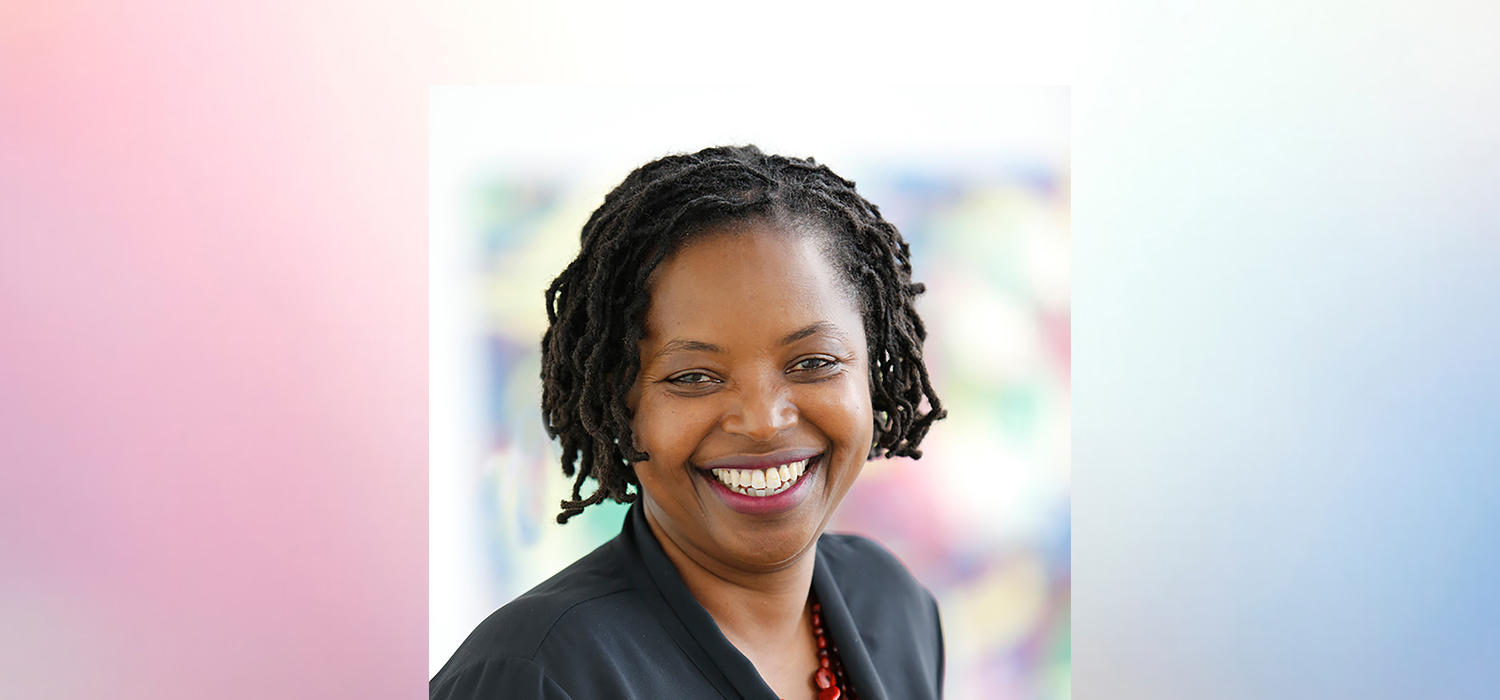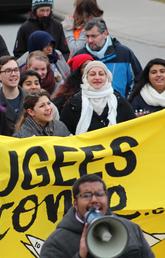Jan. 18, 2021
How social justice and mental health interconnect

Last fall, during the month-long mental health and well-being initiative UFlourish, we held a workshop called Doing Social Justice Compassionately that called for gentler and more persuasive forms of social justice work. We also looked at how social justice and mental health can interact individually and in community.
Since social work is built on a foundation of social justice, we reached out to Faculty of Social Work professor Dr. Regine Uwibereyeho King, PhD, pictured above, to get her unique perspective. As a survivor of the 1994 genocide against the Tutsi people in Rwanda, she’s seen first-hand the devastating impacts that unchecked hatred and othering can have. Her academic career has also focused on helping societies heal from terrible tragedies, divisions and other injustices, including anti-Black racism.
Q. What are the links between social justice and mental health?
A. Social justice discourse is action-oriented rather than the articulation of a philosophical position. Social justice requires critical reflexibility, that is holistic and cyclical, with the ability to connect our heads to our hearts, and our attitudes to our practices. Social justice is never a solo endeavour, it is conceived and lived in community.
A community can consider itself to be just when it becomes a place in which each person is valued, where differences are recognized as assets, where children and youth can look up to their seniors as role models in the process of character development, where women’s abilities are recognized and encouraged, where the elderly and those who live with any kind of limitations can be ensured of respectful care, and where abundance means that everyone has all that is needed to live a good and meaningful life.
A community in which social justice reins will be characterized be decreased levels of competition, abuses of power, fears and anxieties, and violence. A community of justice will be able to tap into the force and talents of the collective to appropriately respond to poverty, plagues, natural disasters, and the individual weaknesses that are part of human life. Such communities possess resiliency and the ability to bounce back in times of adversity!
In the domain of health equity, social justice is holistic in that it speaks to all social determinants of health, including anti-racism, and specifically anti-Black racism. The scope includes the mental health of community members and their overall well-being.
Q. What would you say are the mental health impacts of social injustice?
A. The social injustices and oppression are forms of violence, and violence is a traumatizing factor. Social injustices, overt or covert, impose a heavy weight and require a lot of physical, emotional, and psychological energy simply to endure them.
Social injustices suck the life blood from individuals and families. They impact their self-worth, agency, self-confidence, and evaluation of their abilities. It is tragic that social injustices create suspicion, perpetual self-questioning, despair, and a sense of isolation that can be very difficult to bear, and even loss of life. Social injustices have devastating mental health impacts and they destroy people’s lives with immense societal costs.
Those who find themselves on the privileged end of the social spectrum may think that they simply need to protect themselves and their families. In the process they oppress in order to maintain their position and maximize their benefits. What they forget is the foundational principle of healthy communities — that social injustices destroy all of us in the end. Social injustices negatively impact communities and the individual identities within them.
In my experience, real joy or positive mental health is the outcome of a shared vision of caring for others and acting as agents of positive change.
Q. How we can guard our mental health and personal boundaries while doing this work?
To guard our individual and collective mental health, we should intentionally find ways to build meaningful relationships and caring communities. No one is an island.
Secondly, we tend to spend so much time on risk factors that we have little time and resources to build protective factors. It should be the other way around: start with the development of protective factors, equitable policies, and build the capacity of community members. The risks will disappear by themselves.
Thirdly, when we start recognizing that each citizen has something to offer to the welfare of all, we will be setting the stage to use difference as a resource and not a calamity.
Finally, I recognize that there are many people who are hurting right now, including helping professionals and those who are most marginalized. This is a critical moment in the life of the global community. During this period of COVID-19, many may be thinking that the world is falling apart. However, together, we can do something about it. To stop the downhill spiral, my question to myself and to you is, “Can we, singularly and collectively, offer to let others know that they are not alone at this time?” Can we stop being selfish and self-centred?"
Even a simple hello, a (distanced!) smile can make another person’s day. This can be a starting point deploying our assets to bring about change and hope, for social justice-driven communities.
Join Dr. King in an online public talk for the latest research on Black Canadians' mental health. Learn more and register here.
The University of Calgary’s Campus Mental Health Strategy is a bold commitment to the importance of mental health and well-being of our university family. Our vision is to be a community where we care for each other, learn and talk about mental health and well-being, receive support as needed, and individually and collectively realize our full potential.






